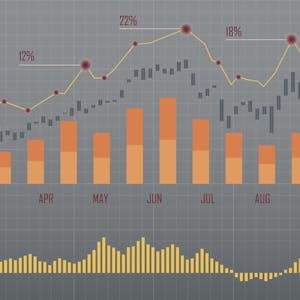Enhance your ability to design and conduct experiments efficiently and effectively with the Design of Experiments course. Gain expertise in modern experimental strategy, including factorial and fractional factorial experimental designs, response surface methods for system optimization, and experimental design tools for computer experiments. Applications span diverse industries such as electronics, automotive, pharmaceuticals, and medical devices.
Throughout the course, you will learn to approach complex industrial and business research problems through rigorous, statistically sound experimental strategies. This includes employing modern software to plan experiments, analyzing resulting data, and effectively communicating results to decision-makers. You will also delve into response surface methodology, conducting experiments with computer models, and understanding how to build empirical models from experimental design data.
Furthermore, the course delves into designing and analyzing experiments involving random models, nested and split-plot designs, covariates, and nonnormal response distributions. This comprehensive approach ensures learners are adept in addressing a wide range of experimental scenarios and challenges.
Certificate Available ✔
Get Started / More Info
Gain expertise in experimental design basics, factorial and fractional factorial designs, response surfaces, mixtures, model building, random models, nested and split-plot designs, and covariate analysis.
Enhance your understanding of experimental design basics and modern software tools for effective experiment planning, data analysis, and result communication. This module equips you to address complex industrial and business research problems through statistically sound experimental strategies.
Conduct factorial and fractional factorial experiments, analyze the results, and understand the analysis of variance for such designs. Explore the 2^k system of factorial designs and apply these concepts to experiments with multiple factors.
Delve into response surface methodology, mixtures, and model building. Learn how to conduct experiments with computer models, utilize least squares regression to build empirical models, and optimize systems using response surface strategies.
Master the design and analysis of experiments involving random models, nested and split-plot designs, covariates, and nonnormal response distributions. Extend your expertise to cover a wide range of experimental scenarios and challenges.
Bayesian Statistics: Techniques and Models offers an in-depth exploration of advanced Bayesian statistical models and computational techniques, providing learners...
Improving Your Statistical Inferences is a comprehensive course that equips learners with the knowledge and skills to enhance their statistical inferences, experimental...
Measurement Systems Analysis provides comprehensive training on analyzing measurement systems for process stability and capability using R software.
"Trees, SVM and Unsupervised Learning" provides a comprehensive understanding of support vector machines, neural networks, decision trees, and XG boost....